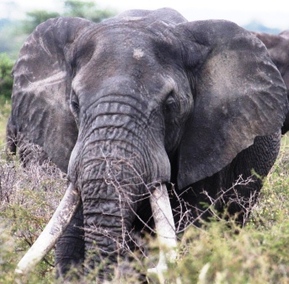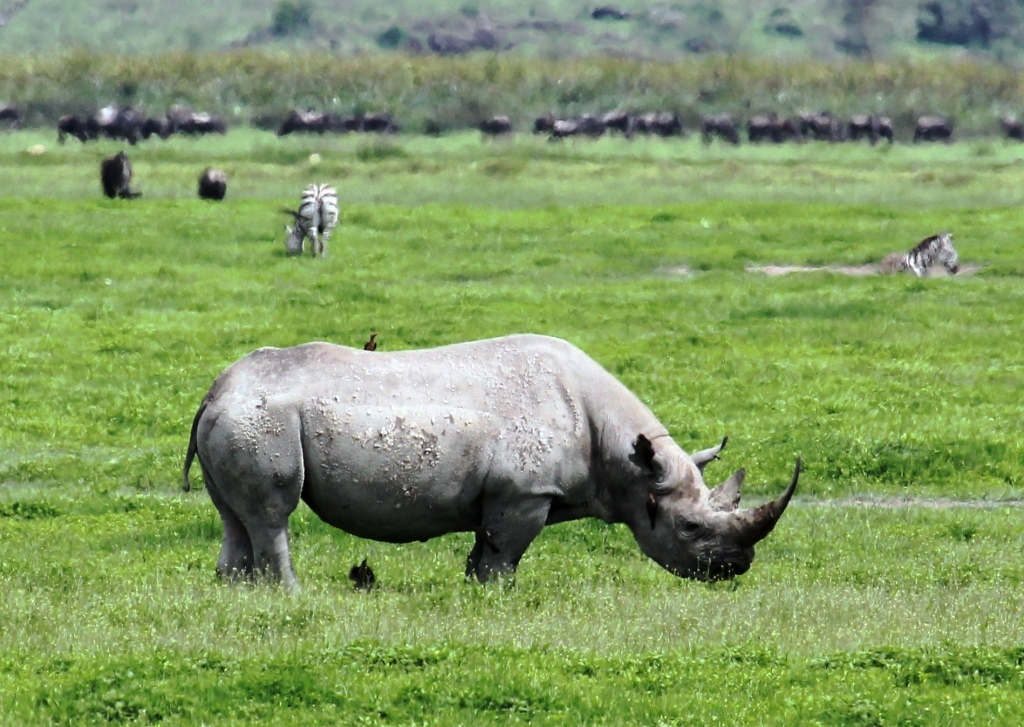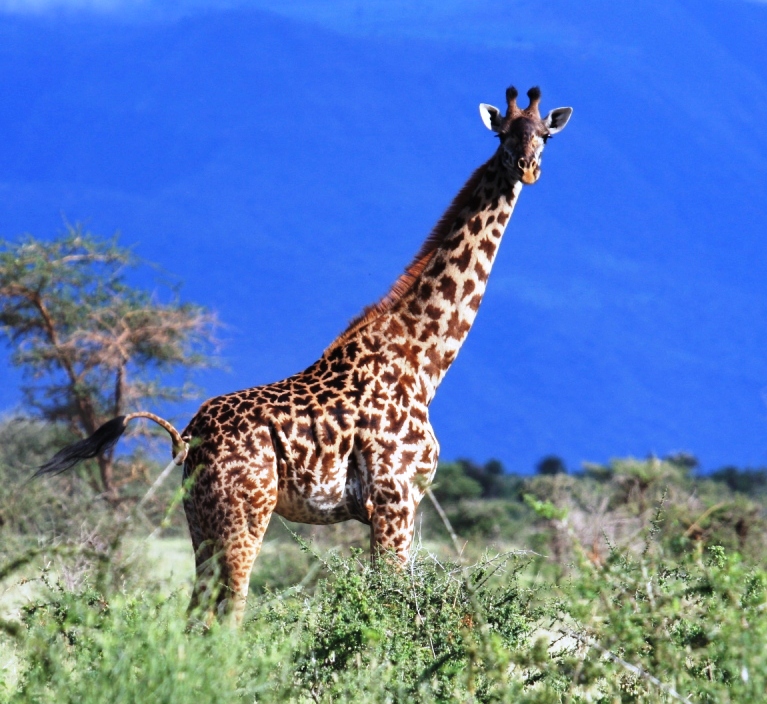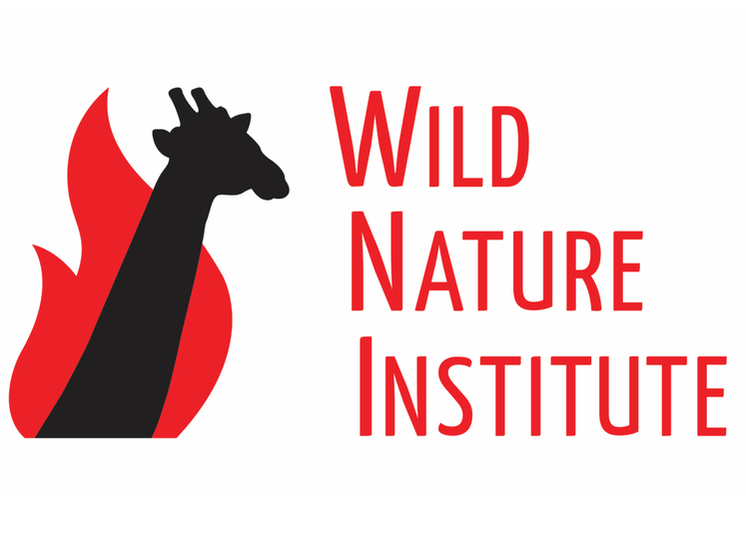 African Elephant on Manyara Ranch African Elephant on Manyara Ranch A new scientific study published in the journal Nature Geoscience concluded that the mass extinction of large animals during the Pleistocene epoch caused today’s scarcity of soil nutrients and warned of further soil damage if modern large mammals like the elephant disappear. During the Pleistocene epoch (about 2.6 million to 11,700 years ago, a time period spanning the world's recent glaciations) massive "megafauna" roamed the earth. These megafauna included the giant ground sloth and the glyptodon, a relative of the armadillo that was roughly the size and shape of a Volkswagen Beetle! These megafauna ate much more food and traveled much longer distances than smaller animals. They spread nutrients far and wide via their dung and decomposing bodies, and so were a major factor in long-distance soil fertilization. Pleistocene megafauna extinctions likely resulted from overhunting by humans, climate change, disease, or some combination of these factors. The only continent where these mass extinctions did not occur was Africa, where megafauna co-evolved with modern humans. The loss of megafauna in the Amazon region during the Pleistocene reduced the dispersal of phosphorus away from rivers and floodplains by 98 percent, the researchers estimated.
According to the study's authors, loss of soil fertility will be a catastrophic side-effect of the extinction of today's remaining megafauna, most of which are found in Africa and Asia. Sadly, extinction of many giant animal species is a very real possibility. This is yet another reason why the protection and restoration of mega-herbivores such as African elephants, Maasai giraffes, and black rhinoceros in the Tarangire Ecosystem is so very vital. We thank all of our supporters for aiding us in our efforts to ensure a future not only for giraffes, but the savanna's soil as well!
0 Comments
Your comment will be posted after it is approved.
Leave a Reply. |
Science News and Updates From the Field from Wild Nature Institute.
All Photos on This Blog are Available as Frame-worthy Prints to Thank Our Generous Donors.
Email Us for Details of this Offer. Archives
July 2024
|
|
Mailing Address:
Wild Nature Institute PO Box 44 Weaverville, NC 28787 Phone: +1 415 763 0348 Email: [email protected] |
|



 RSS Feed
RSS Feed
